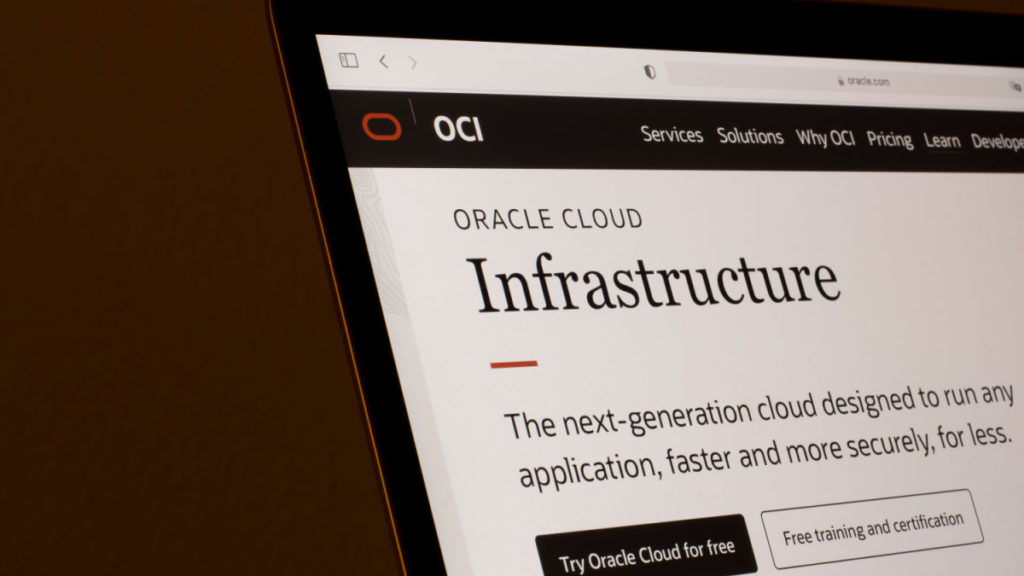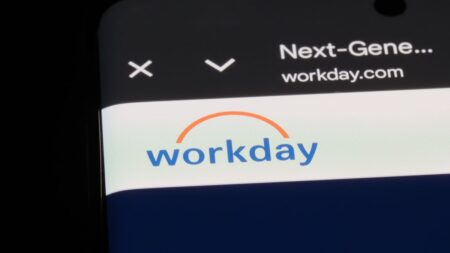
Yes, it’s only January, but Oracle’s new Alloy XYZ is already a major contender for product of the year as it creates a massive new category in which big Oracle cloud-infrastructure customers evolve into cloud providers offering industry-specific solutions to other businesses.
If that sounds a little crazy, well, perhaps it should because:
- First and foremost, it’s never been done before
- It has the potential to totally redefine what a “cloud provider” is
- It represents a breakthrough point in the rapidly escalating co-creation phenomenon
- It gives more opportunities for digitally focused businesses to drive growth and innovation for themselves and others
- It further underscores that while being a “hyperscaler” is great, it’s not enough in today’s highly disruptive world
- It will drive the Silicon-Valley-bubble purists absolutely bonkers because their NIST-focused definitions just can’t handle cloud customers becoming cloud providers, and/or cloud providers creating other cloud providers
And I say let that screeching begin! Because while Oracle Alloy and all it represents will drive a small number of noisy but insignificant dogma-lovers nuts, it will also unleash huge new waves of business innovation for Oracle’s customers, for those customers’ customers, for Oracle itself, and for any/all competitors savvy enough to jump into this cloud customer/provider game.
(Some unsolicited advice for those isolated-in-the-bubble purists: get over yourselves. The cloud business is no longer driven by the NIST or by Silicon Valley/Seattle or by cloud vendors — it is now and forever more powered by what customers want, need, and co-create. You’re welcome.)
Late last year, I spoke about Alloy with Clay Magouyrk, Oracle Executive Vice President of Cloud Infrastructure Engineering to learn what drove Oracle’s decision to branch out into this totally new area. (You can watch the full video interview here.)
And while Magouyrk shared some riveting insights into how and why Oracle made this big leap into uncharted territory with Alloy, this comment, in particular, captures not just what’s happening with Alloy but also the entire company’s stunning success that’s made it the fastest-growing major cloud vendor in the world.
“We at Oracle think that the future of the cloud doesn’t look like a relatively few number of very large regions and relatively few geographies,” he said. “That isn’t how the world has worked in the past, and I just don’t think that’s going to work in cloud infrastructure for the long run.”
Magouyrk, who loves to talk about the good things that happen when you actually listen to customers versus trying to constantly impress them with how smart you are, said that two big forces converged to trigger the Alloy idea:
- First, businesses have a rapidly escalating need for higher-level and more-precise control over their data and interrelated security and privacy issues; and
- Second, there’s just no way that businesses — even huge corporations that invest aggressively in cloud technology — can keep up with the pace of cloud innovation being set by the major cloud providers
And Magouyrk said he realized that, under the current operating model of the cloud industry, there was no way to reconcile those two conflicting trends.
“It’s funny sometimes what can happen if you just listen to what customers tell you,” rather than continuing to try to lock them into yesterday’s ideas, Magouyrk said.
“And if you look at what’s happening around data jurisdiction, data residency, data control, and the sovereign control of data, you also see a very big push, whether it be regulations in this country or that country because the world is shifting in that direction.”
At the same time that businesses are experiencing this need for more control and precision as they attempt to take advantage of new digital opportunities in their markets, they’re also realizing that they can’t succeed in being both a pharmaceutical company and a cutting-edge private cloud factory, or a financial services company and a cutting-edge private cloud factory.
“If you go back 10 or 8 or even 6 years ago, there were a lot of people still kind of trying to build their own private clouds, whether it be built on some hyper-converged infrastructure, or whether it’s an OpenStack or maybe it’s built on VMware.
“And that has kind of gone by the wayside because what I think most people realized is they couldn’t keep up — they couldn’t have best-in-class technology on top of such a deployment.
“So we said, ‘Okay, let’s take a step back — what can we do to help? What if we really leaned in, instead of saying, This is what cloud is and it’s only this way? What if we made it to where it was flexible, such that you can deploy it anywhere, you can be very small or very large? And what if other people could have different levels of varying control?’
“And that’s really the idea behind Alloy.”
And while Alloy’s still very new to the market, Magouyrk pointed to two different types of motivations among customers: one from the need to enforce data sovereignty in appropriate ways, and another from a desire to leverage unique IP for growth.
“We’ve had a lot of really positive reception coming from kind of the data-sovereignty side where it’s all about massive control with governments and legal entities saying, ‘Hey, we’re highly regulated and we want to solve this problem.’
“But also part of the interest really comes from companies that have very differentiated value up the stack. If we can help them combine that with our infrastructure, it really gives them a one plus one equals three kinds of opportunity.”
While that sounds fairly simple, it also required a huge breakthrough in thinking about the world of tomorrow and what it will take to create that, versus just projecting current reality into the future.
“I ask this of my internal teams and I ask customers: ‘Today, we can argue plus or minus 5%, but about 30% of workloads have moved to the cloud. Do you think in the long term, that everything is gonna move to the cloud?’ And people say, ‘Yeah, I think so.’
“So then I ask, ‘Okay, then do you think all of that is going to be run and controlled by a relatively few US companies or a couple of Chinese companies? Do you think all of the world’s serverside computing will be controlled by that?’
“And they say, ‘Oh no — definitely not.’
“Well then, we have to invent the technology that enables us to actually build the cloud that way. And so what Alloy is about is taking that step because we think there’s more that we can do as a cloud provider to give customers all of the benefits of the cloud while still offering a lot of the control that many industries and customers require.”
To show how that might work, Magouyrk offered three examples.
Huge Opportunities in Regulated Industries Such as Financial Services
First, some financial services firms have built sophisticated and elegant cloud-based software tools and platforms on Oracle Cloud Infrastructure (OCI), and those financial services firms would like to sell that purpose-built software to other companies in a model not unlike being a SaaS provider.
“But as you know, you need to have ways to also offer the extension platform, right? And so up until now, they’ve really been doing a lot of that kind of like an MSP, or like an on-premise solution,” Magouyrk said.
But as the regulatory environment keeps getting more intense, and as customers’ needs and expectations keep rising, those would-be software providers are looking for a more modern approach.
“They’re saying, ‘Wouldn’t it be way better if we could just offer all of the value of OCI and have it right beside our differentiated financial service cloud? And then a customer can come to us and get everything,’ ” rather than having to contract separately for OCI from Oracle and the specialized software from the financial-services firm.
“But suddenly, when you talk about data sovereignty, wouldn’t it be nice if you could have the same level of operator access and data governance and controls? Well, that’s the gap I’m trying to bridge with this different environment” called Alloy, he said.
Telecom Opportunity
Magouyrk said similar conversations are underway with telecom companies that have been trying, but without much success, to keep up with the private cloud innovations and capabilities offered by Oracle and other major cloud providers.
“They’re doing it themselves with hyper-converged infrastructure, or they’re doing some VMs and storage. But then when they hear about Alloy, they’re like, ‘Oh, this is a much better platform for us.’ “
Public Sector Segment
“In the government space, if you look at a lot of the more-stringent regulations and some of the most sensitive government workloads, there’s an extreme need for not only a local operator that has to meet requirements for cleared personnel or the citizenship of the actual operators, but there’s also many, many governments that are saying, ‘We’re only comfortable building our business on the cloud if it’s fully kind of owned and operated by a company that’s dominantly in our country,” Magouyrk said.
“Okay, well for a company like Oracle, we can only really be dominant in one country, right? So instead of Oracle being the cloud provider, Oracle becomes the broad technology provider to the local telecom company via Alloy, and that local telecom company can be the cloud provider.”
Final Thought
I would urge everyone even remotely interested in this subject to check out the entire video conversation I had late last year with Magouyrk, who in addition to being a world-class cloud visionary is also a terrific storyteller. Because this new category created by Oracle with Alloy is going to be a monster, an outcome that Magouyrk hinted at with more-subtle language.
“So I view this very much as kind of just the beginning of something with Alloy. And obviously, it’s different than what most people have done before.
“But we’re putting a lot of energy into it, because we do see the opportunity there.”
For more insights on the hows and whys of sustainability’s impact on business processes and profits, please join us for the Acceleration Economy Sustainability Impact Digital Summit on January 26, 2023. Register today for your free streaming pass here.









